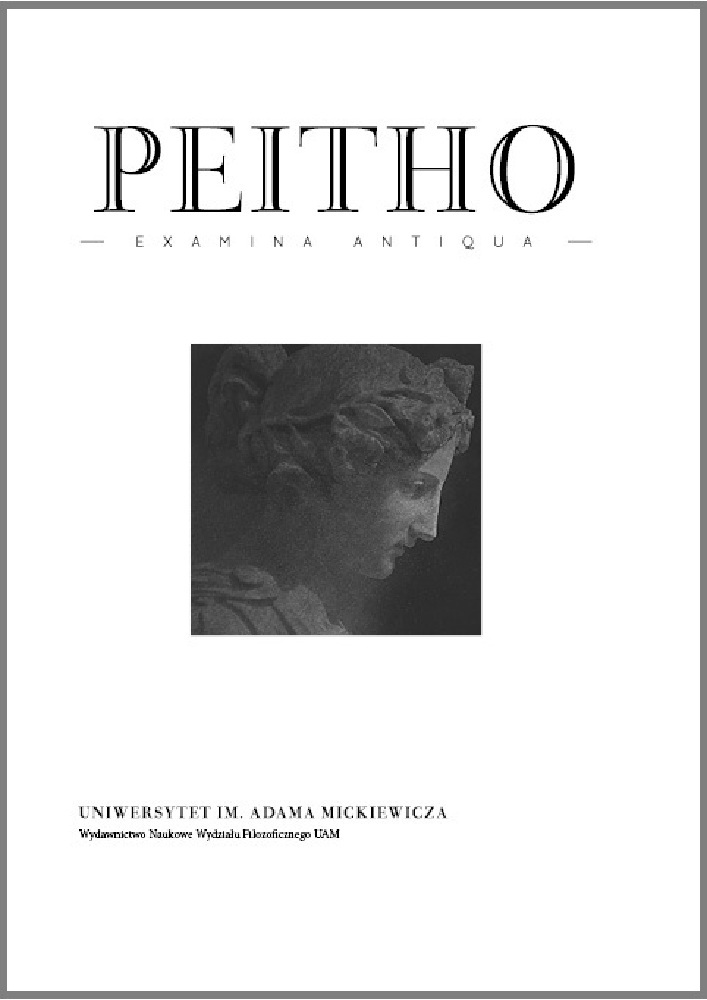Abstract
This essay addresses two interconnected questions: (a) In what sense is Skepticism a philosophy? (b) How can ataraxia emerge out of epochē? Skepticism is a practice that articulates three moments: equipollence, epochē (suspension of judgment), and ataraxia (freedom from disturbance) and Sextus’ account of how one can move through these moments demonstrates the its philosophical nature. However, to clarify the transition from epochē to ataraxia Sextus offers only one clue: the story of Apelles. If this story is paradigmatic, it is also ambiguous since the transition from epochē to ataraxia can neither be causal nor inferential. Apelles achieves his goal purely by chance. Contrary to a common interpretation, this doesn’t mean that the Skeptic abandons the inquiry (just as Apelles doesn’t abandon painting). Lastly, the essay argues that Skepticism is not only the practice of a certain dialectical method but also a practice upon oneself. The Skeptic must learn to dissociate herself from the thoughts she entertains. Sustained inquiry can coexist with ataraxia because the Skeptic has discovered that her consciousness is distinct from its intentional content now bracketed by epochē. To free ourselves from our attachment to dogmatic beliefs is to opens up a space of self-detachment.
References
Sextus Empiricus, Outlines of Skepticism, ed. J. Annas & J. Barnes, Cambridge 2000.
Sextus Empiricus, Outlines of Pyrrhonism. Against the logicians. Against the physicists, Against the ethicists.
Against the professors, ed. R. G. Bury, vol. I–IV, Cambridge MA 1933–1949.
Diogenes Laertius, Lives of Eminent Philosophers, ed. R. D. Hicks, Cambridge MA 1925.
Bailey, A., 2002, Sextus Empiricus and Pyrrhonean Scepticism, Oxford.
Bett, R., 2011, “How Ethical Can an Ancient Skeptic Be?”, in D. Machuca (ed.), Pyrrhonism in Ancient, Modern, and Contemporary Philosophy, Dordrecht, pp. 3–18.
Brennan, T., 1999, Ethics and Epistemology in Sextus Empiricus, New York/London.
Burnyeat, M., 1980, “Can the Sceptic Live His Scepticism?” in: Burnyeat, Frede (1997), pp. 25–57.
Burnyeat, M., Frede, M., 1997, The original Sceptics: A Controversy, Indianapolis, IN.
Castagnoli, L., 2010, Ancient Self-Refutation: The Logic and History of the Self-Refutation Argument from Democritus to Augustine, Cambridge.
Goethe, J. W., 2001, Faust, A Tragedy, translated by W. Arndt, New York.
Grgic, F., 2006, “Sextus Empiricus on the Goal of Skepticism,” Ancient Philosophy 26, pp. 141–160.
Hadot, P., 2002, What is Ancient Philosophy?, Cambridge, MA.
Johnsen, B., 2001, “On the Coherence of Pyrrhonean Skepticism,” Philosophical Review, 110, pp. 521–561.
Kahn, C., 2001, Pythagoras and the Pythagoreans, A brief History, Indianapolis IN.
Kuzminski, A., 2008, Pyrrhonism: How the Ancient Greeks Reinvented Buddhism, Lanham.
Laursen, J. C., 2009, “Skepticism and Cynicism in the Work of Pedro de Valencia,” in J. R. Maia Neto, G. Paganini, J. C. Laursen (eds.), Skepticism in the Modern Age: Building on the Work of Richard Popkin. Leiden, pp. 139–158.
Massie, P., 2003, “The Irony of Chance: On Aristotle Physics B 4-6,” International Philosophical Quarterly 43, pp. 15–28.
Mcpherran, M., 1989, “Ataraxia and Eudaimonia in Ancient Pyrrhonism: Is the Skeptic Really Happy?”, Proceedings of the Boston Area Colloquium in Ancient Philosophy 5, pp. 135–171.
Perin, C., 2006, “Pyrrhonian Scepticism and the Search for Truth,” Oxford Studies in Ancient Philosophy 30, pp. 337–360.
Perin, C., 2010, The Demands of Reason, an Essay on Pyrrhonian Scepticism, Oxford.
Stough, C., 1984, “Sextus Empiricus on Non-Assertions,” Phronesis 29, pp. 137–164.
Striker, G., 2001, “Scepticism as a Kind of Philosophy,” Achiv für Geschichte der Philosophie 83, pp. 113–129.
Vogt, K. M., 2010, “Scepticism and Action,” in R. Bett (ed.), Cambridge Companion to Ancient Scepticism, Cambridge, pp. 165–180.
Vogt, K. M., 2012, “Appearances and Assent, Sceptical Belief Reconsidered.” The Classical Quarterly 62, pp. 648–663.
Wersinger, A. G., Perceau, S., 2010, “L’auto-réfutation du Sceptique vue de la scène antique” Revue de Métaphysique et de Morale 65, pp. 25–43.
License
Peitho provides immediate open access to its content on the principle that making research freely available to the public supports a greater global exchange of knowledge.
